No wonder they mobilize all their energy to have more or most. Or better still, all.
ADELE FABERRelated Topics
Anand Thakur



No wonder they mobilize all their energy to have more or most. Or better still, all.
ADELE FABER

Comforters for our todays / Guardians of memories
ADELE FABER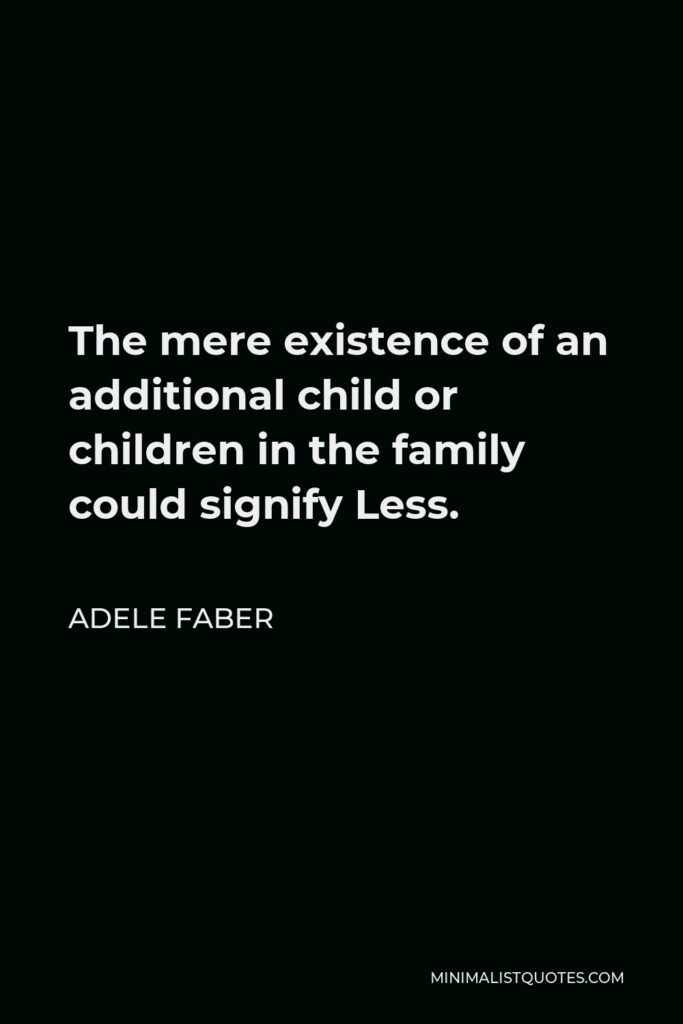

The mere existence of an additional child or children in the family could signify Less.
ADELE FABER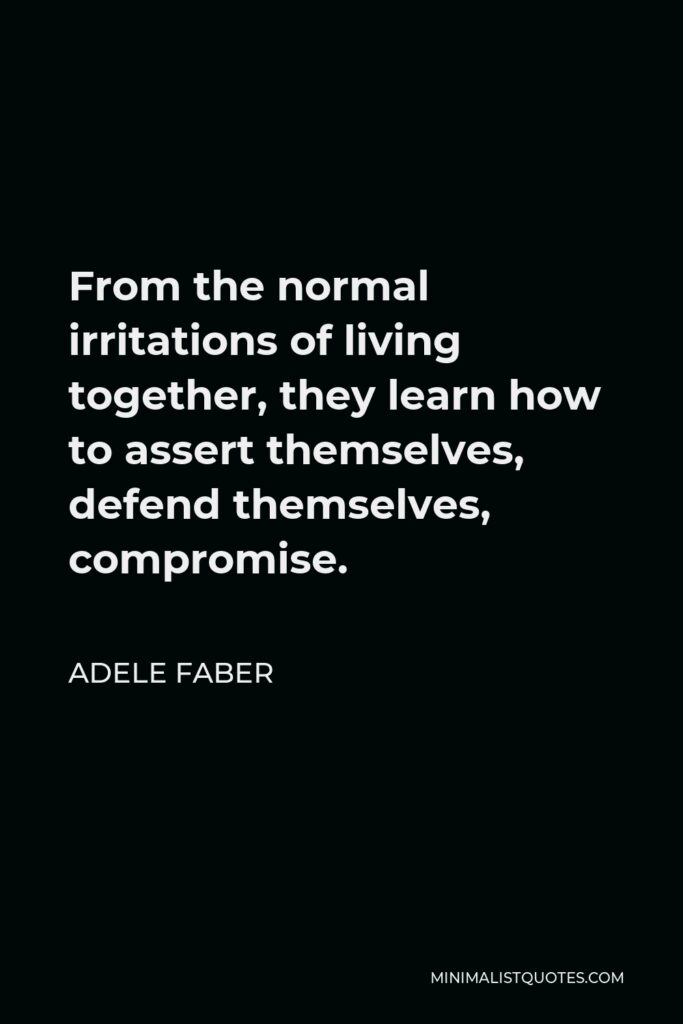

From the normal irritations of living together, they learn how to assert themselves, defend themselves, compromise.
ADELE FABER

I was a wonderful parent before I had children.
ADELE FABER

Keeping our youth and yesterdays alive / Comrades with one history.
ADELE FABER

Less time alone with parents. Less attention for hurts and disappointments. Less approval for accomplishments. . . .
ADELE FABER

The whole world will tell them what’s wrong with them–out loud and often.
ADELE FABER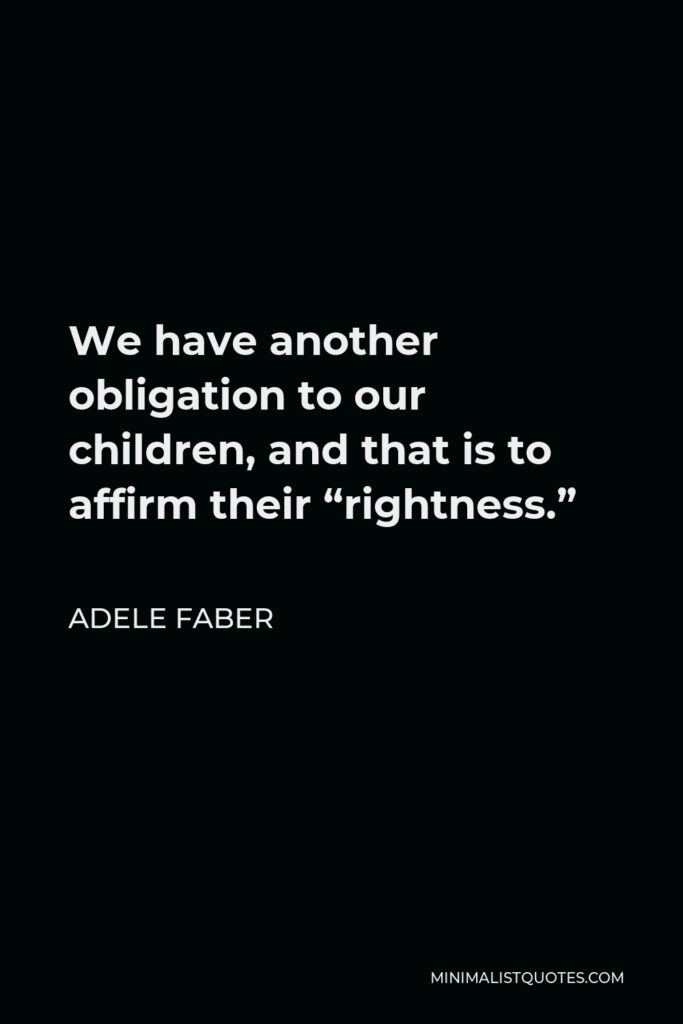

We have another obligation to our children, and that is to affirm their “rightness.”
ADELE FABER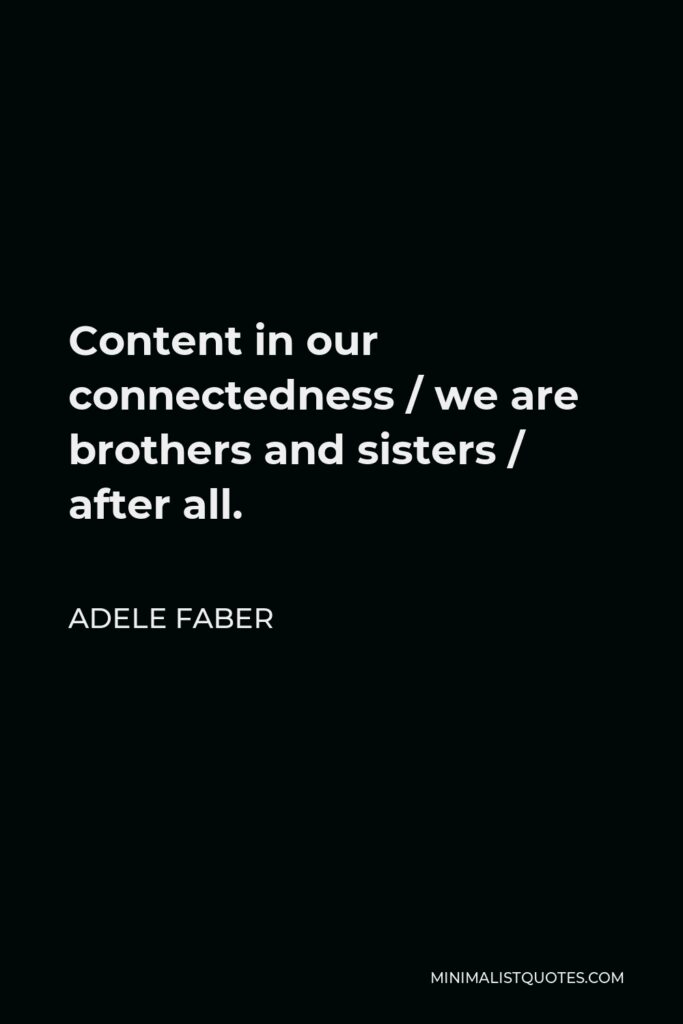

Content in our connectedness / we are brothers and sisters / after all.
ADELE FABER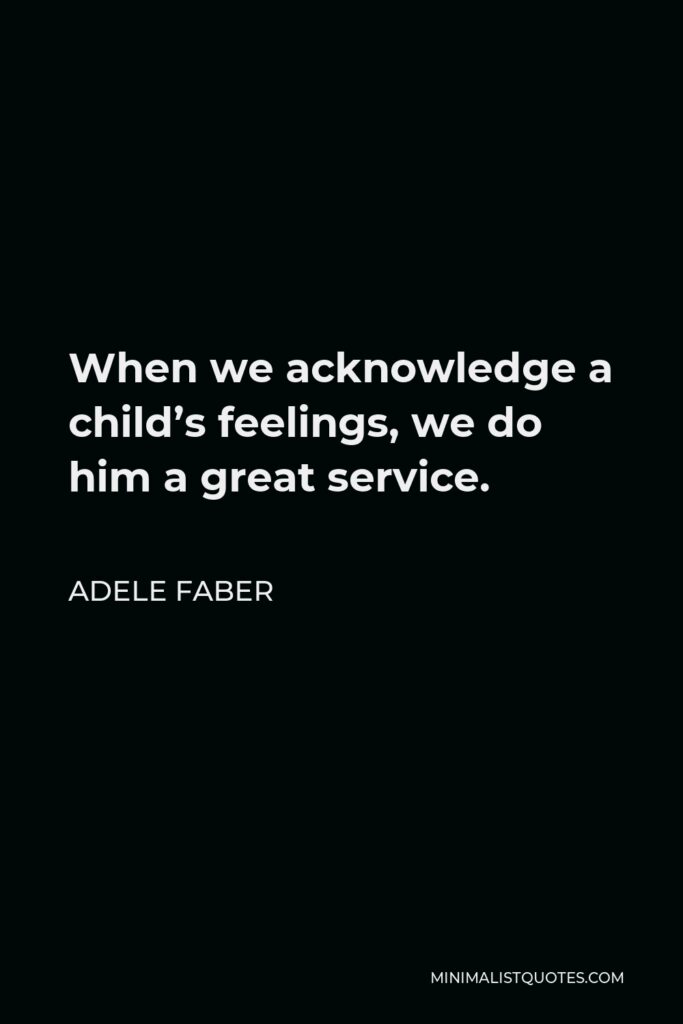

When we acknowledge a child’s feelings, we do him a great service.
ADELE FABER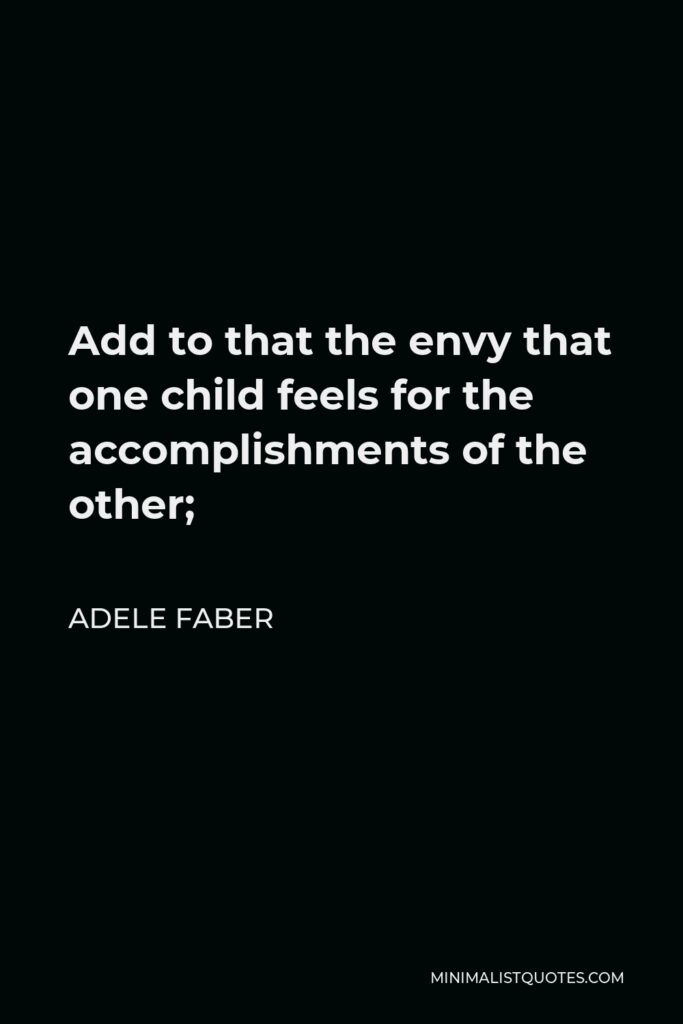

Add to that the envy that one child feels for the accomplishments of the other;
ADELE FABER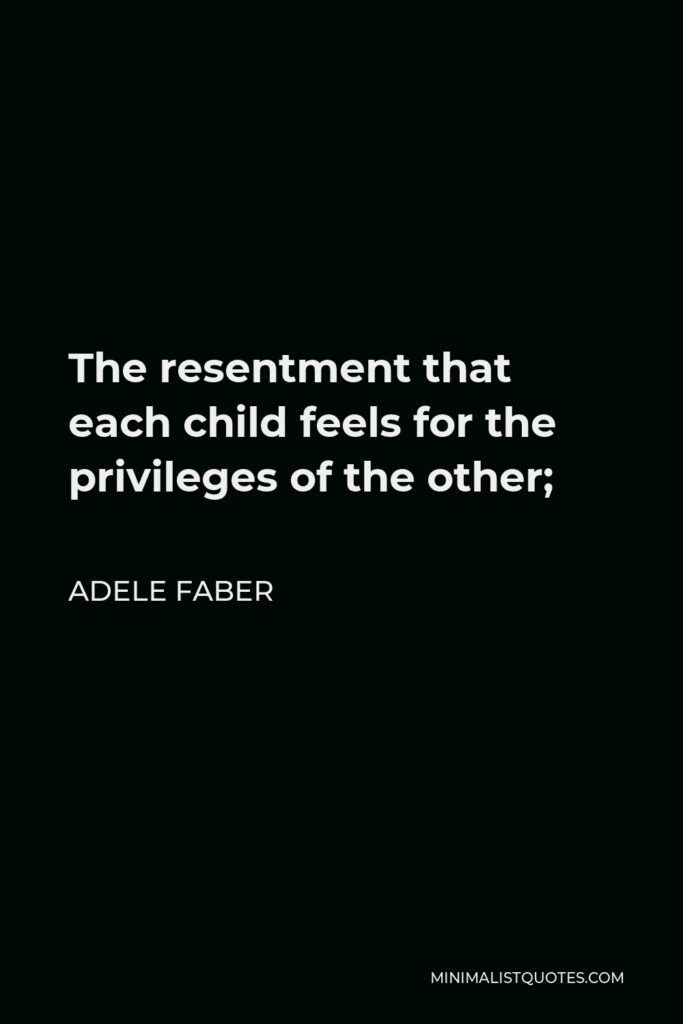

The resentment that each child feels for the privileges of the other;
ADELE FABER

I was a wonderful parent before I had children.
ADELE FABER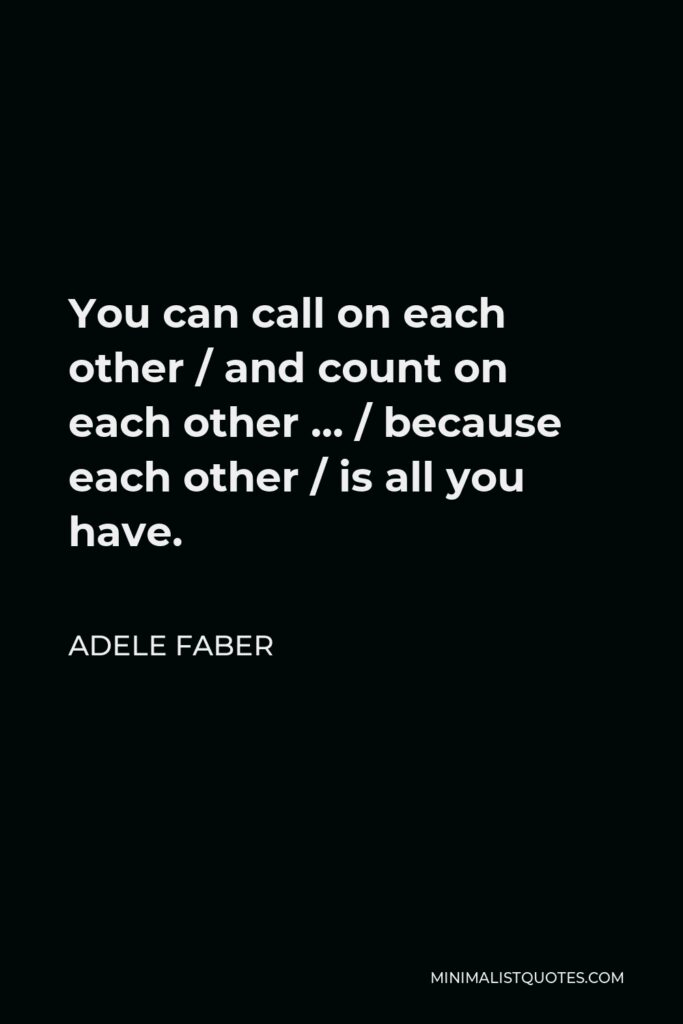

You can call on each other / and count on each other … / because each other / is all you have.
ADELE FABER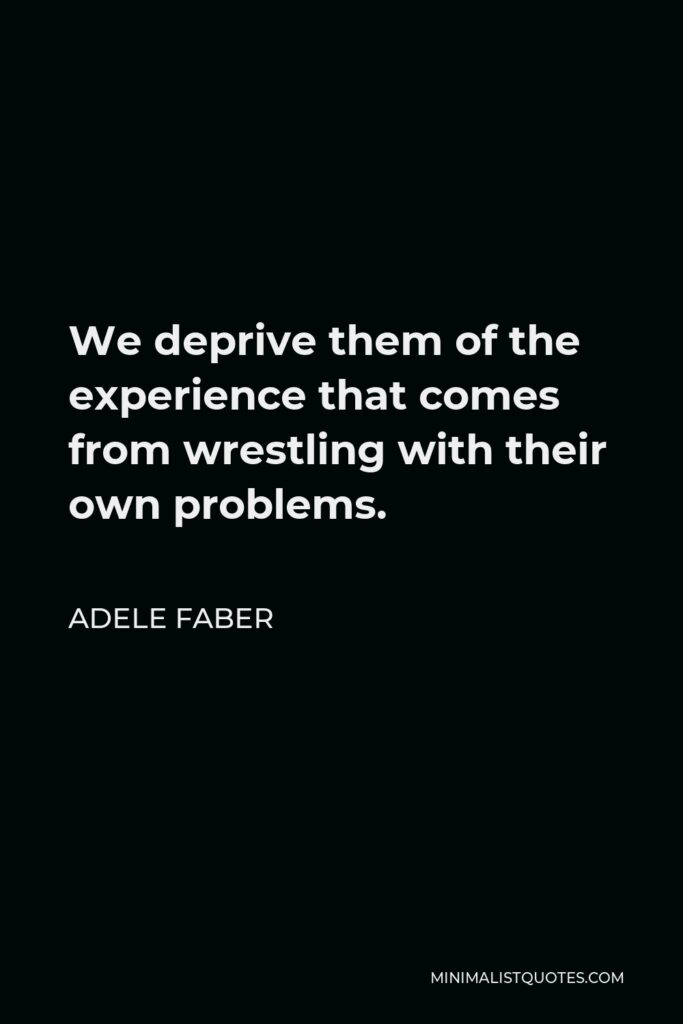

We deprive them of the experience that comes from wrestling with their own problems.
ADELE FABER